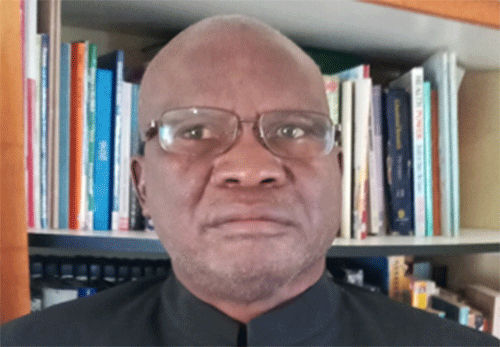The Lusata Ceremony of the Mafwe community held on 1 October has come to pass, and it is going back to square one.
As usual, the process, which should take months to prepare, will be forgotten until September 2024. It is quite strange that organisers of such a phenomenal event should relax and only panic when left with one month to the event.
With good organisational skills, this event could adequately fund
itself and the invited guests. This could be done by introducing the Namukau system (Namafe, 2022), in which a piece of land given by the chief is jointly cultivated and the proceeds are shared equally. It is like ujamaa introduced in Tanzania by Nyerere or the kibbutz system in Israel. Despite the limitations of the event, one thing stood out, as this year’s festival will go into the annals of the Lusata as unique and
historical.
It is so because the event managed to bring all four ngambelas (prime ministers of traditional leaders) of the region together at such a public occasion. The gesture
equally portrayed the way for peaceful co-existence and mutual trust and understanding among
the traditional authorities, which
has been publicly strained for some time.
It is envisioned that the gesture will assist the young ones and the public to embrace one another, and enhance the spirit of oneness in the region. This is long-overdue for the people of the Zambezi region, who have been scratching one another
for one reason or another.
Misunderstandings lingering over ethnicity are everywhere in the world, including in Namibian communities. But people
reconcile and forge ahead with developmental agendas. It is appreciated that the governor of the region alluded to the scourge of ethnicity at the event, and briefly unpacked the dangers emanating from its embracement. He quoted Litunga Mamili’s sentiments, indicating that tribalistic tendencies are hatched in the offices by educated people, while the traditional authorities were unfairly targeted and labelled for carrying out this tendency.
The preaching about the abolition of ethnicity is not enough, but the means of uprooting it should be sought in all sectors. Affirmative action and a quota system should
be used in appointments. Yes, we
are a nation. Therefore, everybody should feel integrated into the system of governance. It is equally unfortunate that the song of
tribalism has been sung the
loudest in the Zambezi region, yet such incidences are found in other regions too.
There are cases of regionalism in many parts of Namibia; of which some of the targets are people from the Zambezi region. The concerns of the traditional authorities in the former Kavango a few years ago regarding the promotion of Zambezians lbut keep them to themselves, or find an amicable way of resolving them without blowing the trumpet. The Zambezi region, besides being one of the regions with the highest figures of PhD holders, still fails to resolve some basic educational issues by collaborating with the government.
They feel that for them to climb the promotional ladder and be recognised by the power that be, they need to hike on the shoulders of fellow people from the Zambezi.
Lamb (1990) maintains that tribalism is one of the most difficult African concepts to grasp, as politicians publicly deplore it, yet almost everyone of them practices it. Many African presidents are also more tribal chiefs than nationalistic leaders. But Africa is not the only continent where tribal sentiments are portrayed, as the Arab world
and even the so-called civilised
world are doing the same.
It is incredible that many
European countries could have Black leaders in our lifetime. There is no doubt that in many instances, ethnicity determines who gets the job, promotion, and who gets accepted at the university, implying that your own should be looked after first. Maybe it is natural and unavoidable to like one’s own people first, as blood is thicker than water. But the Good Lord gave an example that a neighbour does not necessarily mean one blood cousin or mother, but anyone created in the image of the Almighty.
Namibians should have learned from the racial experience, and cemented the national link to forge ahead with developmental programmes.
In addition, there should be political will to nip the tribal tendencies in the bud once they rear their ugly head. Maybe the situation in the Zambezi could be attributed to its historical colonial past, in which the issue of divide-and-rule was imposed upon the groups in the region. But times have evolved, and the region has joined the national odyssey with other fellow nationals, and should therefore dance along to the nationalistic tune. The traditional authorities have at last shown the
way for their people to take to peaceful co-existence. The local people know better about their historical existence, and therefore should not allow other elements to derail them in terms of finding a niche for their children in today’s struggle for economic survival. The academic intellectuals from the region should learn from what the Lusata Cultural Ceremony has done and achieved within one event – which is bringing all the four traditional authorities under one roof during the festival, something which was not feasible a few years ago.
*Prof. Makala Lilemba is an academician, administrator, author, diplomat, motivational leader, researcher and scholar.


